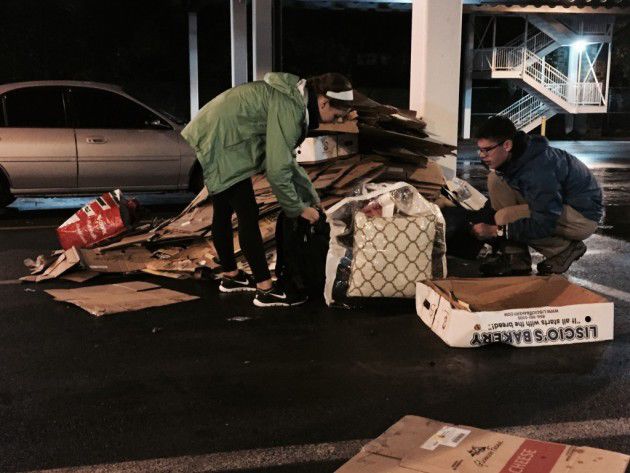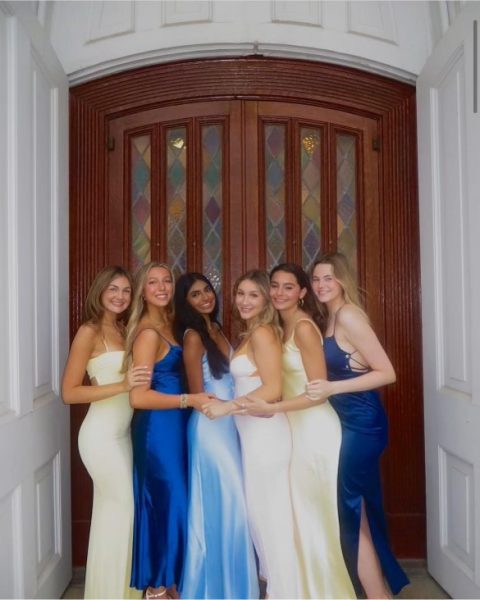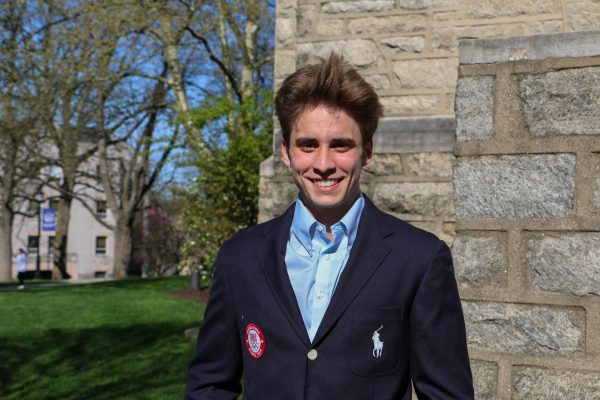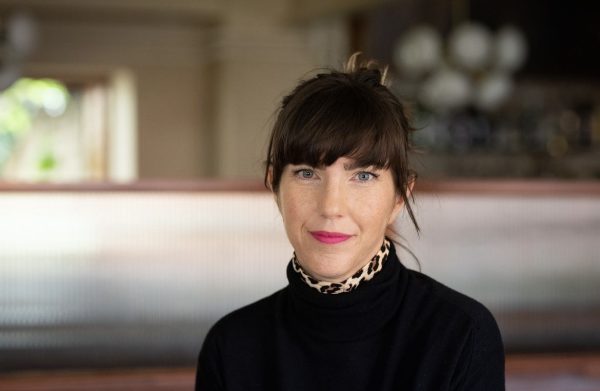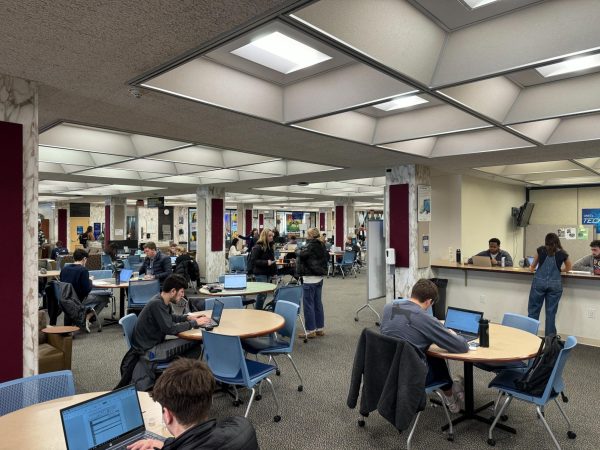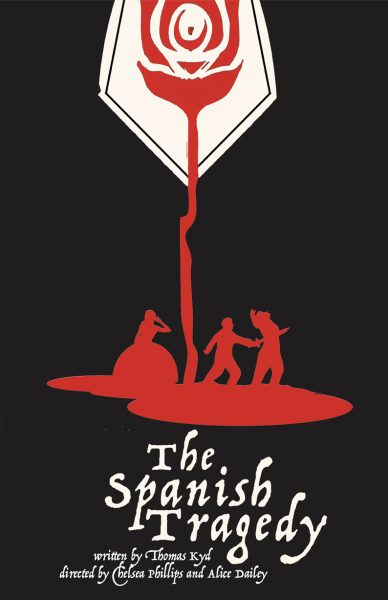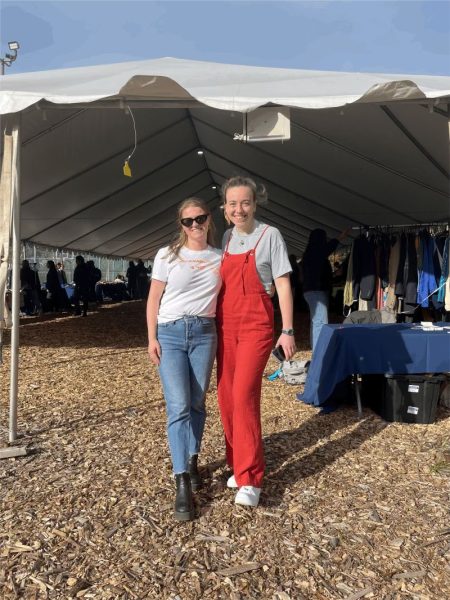Solidarity Sleep-out challenges students’ notions of race, privilege
December 1, 2015
“Uncomfortable.” “Alienated.” “Guilty.” “Lonely.” “Angry.”
That’s how participants in the Homelessness Solidarity Sleep-Out felt when asked to question their advantages in life on a rainy Thursday night during Villanova’s Hunger and Homelessness Awareness Week. Students at the event shouted out these feelings after participating in a privilege walk, one of the numerous sponsored activities of the evening.
More than 100 Villanova students and faculty stood shoulder-to-shoulder while they were asked if they had ever had to worry about their providers putting food on the table, or if they ever had been passed over for an opportunity because of their race. If the answer was no, they took a step forward. The more advantages that were listed, the more the line diverged.
“I found myself constantly stepping forward,” said one female student in the crowd.
The exercise wasn’t meant to make participants feel ashamed, but rather inspire an honest dialogue about privilege, according to Emily Persicketti, a co-senior Head Chair of HHAW. The sleep-out and surrounding events were meant to signify unity with the 500,000 people who experience homelessness in the United States annually. Persicketti’s and other HHAW representatives’ main goal was to challenge people’s misperceptions about hunger, homelessness and privilege.
And challenged they were. One student shouted out that the privilege walk made her feel “lucky,” and Steve Thomas, a speaker from the National Coalition for the Homeless, was quick to jump in.
“You’re not lucky,” Thomas said. “You’re privileged.”
Thomas was addicted to crack cocaine for 40 years and lived without shelter in the D.C. area for 15 of those years. He elaborated that words like “lucky” indicate certain advantages, such as wealth, can happen to anyone. But the real issues causing homelessness are engrained in society, and to escape them, a person doesn’t need a lucky break, but instead the whole system needs to change.
Another student said he had suffered racial disadvantage because, as a white person, he was not admitted to many colleges because of the “unfair” policies of affirmative action. While he spoke, Thomas sighed and shook his head. But then he engaged the student in a lengthy discussion about racial advantage, the type of discussion that would not have occurred if the student had remained silent.
Exchanges like these transpired throughout the night in groups small and large, which was remarkable to HHAW co-senior Head Chair Patrick Smith, who said only 15 people or so came out to this event his freshman year. The sleep-out has grown significantly since then, and Smith called it one of the most “uniquely valuable” experiences he has had at Villanova. The sheer number of Villanovans who attended also inspired Kristina Sumfleth, a senior on HHAW’s public relations committee.
“Things like this give me hope that people do care,” Sumfleth said.
Hopefully, Sumfleth said, through this event, people will realize there are tangible ways they can help. A smile, a simple acknowledgement, can do so much good. Other HHAW members recommended political advocacy and petitioning the local government as a way to change the status quo.
The point that was made resoundingly clear by HHAW representatives and the NCH speakers alike was that homelessness is not a quick fix. There is no easy way, and those who truly want to help must be diligent in their efforts. Attending a prayer vigil, listening to speakers and sleeping out in the Health Center parking lot is a start, but it’s never the finish line.
“Getting people homes is the first thing to do,” Thomas said. “But understand that isn’t the end of the fight.”

